Activist
From Neglect to Action: Abuja Protest Pressures Government to Pay Police Pensions
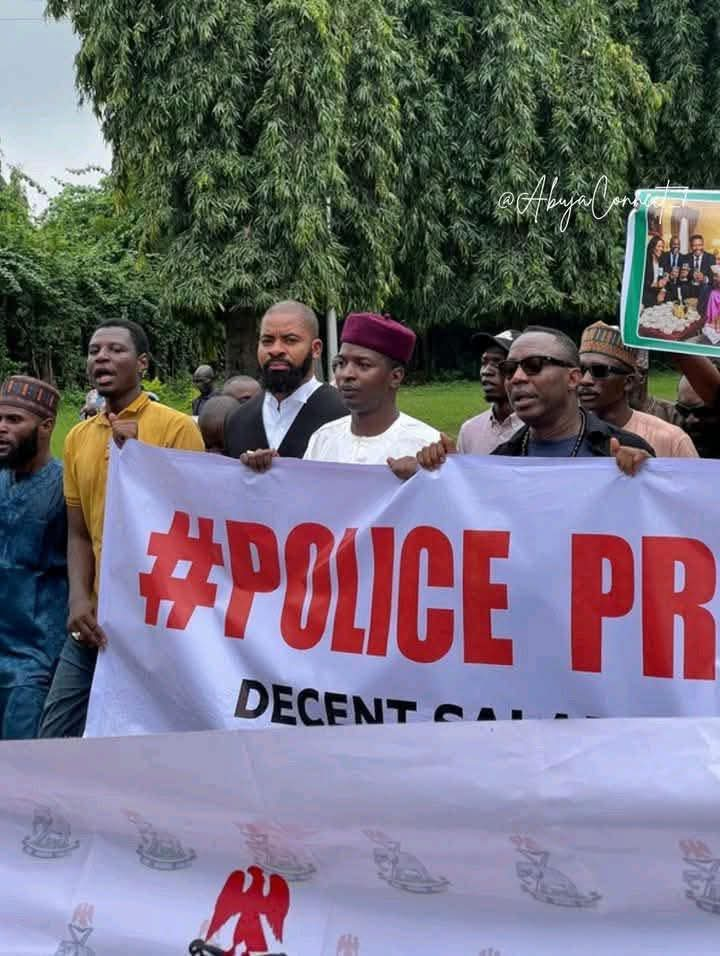
By Our Correspondent
Dan Bello, Sowore, Adeyanju Lead Peaceful Protest for Police Pensions — Government Finally Responds
In a powerful display of civic responsibility and advocacy, prominent activists Bello Galadanchi, Omoyele Sowore, and human rights lawyer Barrister Deji Adeyanju on Tuesday led a peaceful protest in Abuja, demanding the immediate payment of long-overdue pensions and gratuities for retired police officers across Nigeria.
The demonstration, which started from Unity Fountain and proceeded to the Ministry of Police Affairs, was peaceful, orderly, and heavily attended by civil society groups, retired police personnel, and concerned citizens.
Chanting solidarity songs and carrying placards with inscriptions such as “Our Heroes Deserve Dignity,” “Police Are Not Slaves,” and “Pensions Are Not Privileges,” the protesters drew attention to what they described as decades of neglect, underpayment, and bureaucratic injustice suffered by retired police officers who served the country with dedication.
Addressing the crowd, Bello Galadanchi said:
“We are here to speak for thousands of retired officers who can no longer afford food or medication after risking their lives for this country. A nation that cannot take care of its security men in retirement is heading towards moral collapse.”
Omoyele Sowore, the publisher of Sahara Reporters and a former presidential candidate, condemned what he called the “institutional abuse of retired officers,” urging the government to stop treating retirees like second-class citizens.
“These men and women upheld law and order when the country was in chaos. Today, they can’t even access their pensions. This is unacceptable,” he said.
Barrister Deji Adeyanju, known for his strong stance on social justice, emphasized the legal right of retirees to receive their entitlements without delay.
“We will not stop until the last kobo owed to these retired officers is paid. This is not a favour—this is their right under the law,” he declared.
Government Responds Swiftly
In what many consider a victory for the protest leaders and the retirees they represent, the Ministry of Police Affairs issued an official statement just hours after receiving the protest letter. The statement, signed by the Permanent Secretary, assured the protesters that the government has begun processing the backlog of pensions and gratuities and will begin phased payments starting next month.
“President Bola Ahmed Tinubu’s administration is committed to the welfare of all security personnel, including those who have retired. A committee has been set up to review and clear all outstanding entitlements,” the statement read.
Many protesters welcomed the government’s response with cautious optimism, saying they will continue to monitor the situation closely to ensure promises translate into action.
Nationwide Attention
The protest has sparked national attention, with thousands on social media praising the leaders for giving voice to retired officers who have long suffered in silence. Hashtags like #JusticeForPoliceRetirees and #PayOurHeroes have been trending on Nigerian Twitter.
Human rights organizations, including Amnesty International Nigeria and SERAP, have also commended the peaceful nature of the protest and urged the government to follow through on its promises.
A Turning Point
For many, the protest may mark a turning point in how Nigeria treats its retirees—especially those in uniformed service. The bold stance by Galadanchi, Sowore, and Adeyanju is being seen as a critical moment in the push for dignity, justice, and accountability in public service administration.
As the nation watches, retired officers and their families are hoping this is not just another political promise but the beginning of long-awaited justice.
Activist
Succession, Corruption, and Loyalty: Gara Gombe Raises Red Flags for APC in Gombe
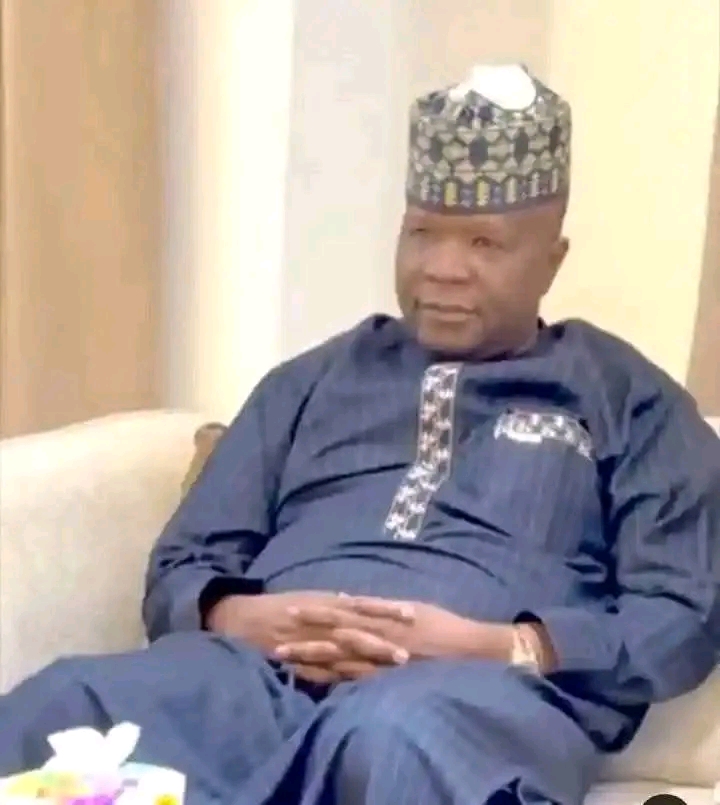
By Our Correspondent
Gombe political analyst and commentator, Ahmad Shuaibu Gara Gombe, has expressed fears over key challenges facing Governor Muhammadu Inuwa Yahaya of Gombe State as his administration gradually winds down with less than two years to the end of his tenure.
In a widely circulated commentary, Gara Gombe, who described Governor Yahaya as “one of the best performing governors in Nigeria today”, outlined four major areas of concern: succession, sustainability of projects, corruption in government agencies, and life after governorship.
Succession Dilemma
According to Gara Gombe, choosing the right successor will be one of the greatest tests for Governor Yahaya. He warned that presenting the wrong candidate could plunge the state into a political crisis similar to the ongoing rift between Kaduna State Governor, Uba Sani, and his predecessor, Nasir El-Rufai.
Projects Sustainability
While praising Yahaya’s developmental strides, Gara Gombe expressed fears that many of the projects may be abandoned by whoever succeeds him. He suggested that the governor should initiate a Projects Sustainability Bill at the State House of Assembly to ensure continuity and protection of ongoing projects, irrespective of changes in political leadership.
Corruption in Government Agencies
The outspoken analyst also raised concerns about corruption within ministries, departments, and agencies of the state. He alleged that some had already been subjected to audit exercises and found wanting. He urged Governor Yahaya to decisively tackle such cases before the end of his administration to preserve his legacy.
Life After Governorship
On the governor’s future political ambitions, Gara Gombe advised him against contesting for a senatorial seat, suggesting instead that Yahaya should focus on playing the role of a kingmaker and statesman. “The parliament of Nigeria does not fit GIYU,” he said, using the governor’s popular acronym.
Political Discontent and Loyalty Concerns
Gara Gombe further noted that some political allies who played roles in Yahaya’s victories still feel neglected and unrewarded. He recommended that the governor organise a Reunion Dinner to reconcile and appreciate his political associates from 2011 to date.
He also alleged that some commissioners, advisers, legislators, and party officials within the governor’s inner circle are already holding secret meetings with opposition figures and considering defection to the African Democratic Congress (ADC). Gara Gombe hinted that he may soon publish their names.
Commendation and Final Note
Despite his concerns, Gara Gombe congratulated Governor Yahaya on the recent creation of Local Development Areas (LDAs) approved by the State House of Assembly, promising to release a detailed opinion on the matter soon.
He concluded by praying for the governor and the people of the state:
“God bless H.E GIYU. God bless Gombe State and our people.
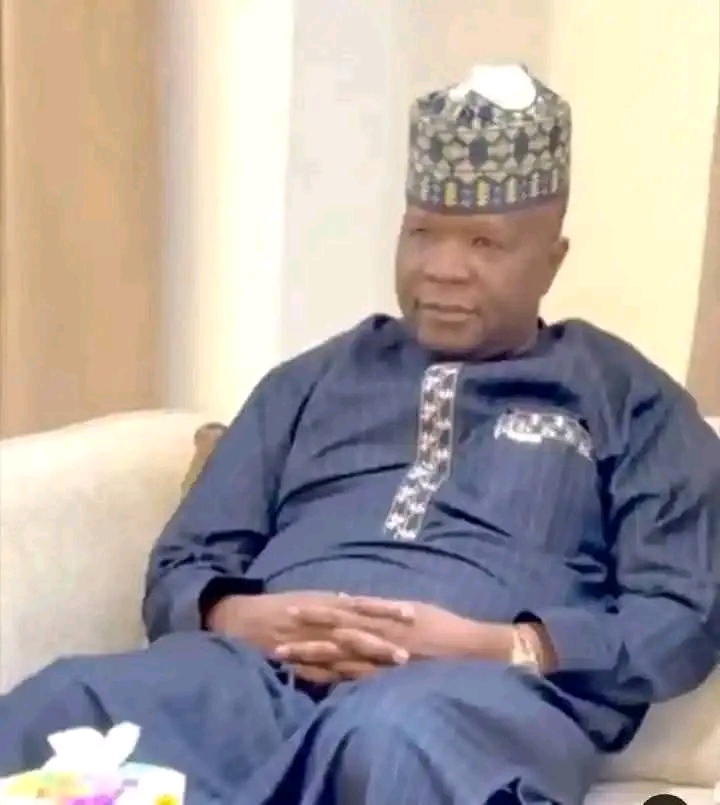
Succession, Corruption, and Loyalty: Gara Gombe Raises Red Flags for APC in Gombe
By Our Correspondent
Gombe political analyst and commentator, Ahmad Shuaibu Gara Gombe, has expressed fears over key challenges facing Governor Muhammadu Inuwa Yahaya of Gombe State as his administration gradually winds down with less than three years to the end of his tenure.
In a widely circulated commentary, Gara Gombe, who described Governor Yahaya as “one of the best performing governors in Nigeria today”, outlined four major areas of concern: succession, sustainability of projects, corruption in government agencies, and life after governorship.
Succession Dilemma
According to Gara Gombe, choosing the right successor will be one of the greatest tests for Governor Yahaya. He warned that presenting the wrong candidate could plunge the state into a political crisis similar to the ongoing rift between Kaduna State Governor, Uba Sani, and his predecessor, Nasir El-Rufai.
Projects Sustainability
While praising Yahaya’s developmental strides, Gara Gombe expressed fears that many of the projects may be abandoned by whoever succeeds him. He suggested that the governor should initiate a Projects Sustainability Bill at the State House of Assembly to ensure continuity and protection of ongoing projects, irrespective of changes in political leadership.
Corruption in Government Agencies
The outspoken analyst also raised concerns about corruption within ministries, departments, and agencies of the state. He alleged that some had already been subjected to audit exercises and found wanting. He urged Governor Yahaya to decisively tackle such cases before the end of his administration to preserve his legacy.
Life After Governorship
On the governor’s future political ambitions, Gara Gombe advised him against contesting for a senatorial seat, suggesting instead that Yahaya should focus on playing the role of a kingmaker and statesman. “The parliament of Nigeria does not fit GIYU,” he said, using the governor’s popular acronym.
Political Discontent and Loyalty Concerns
Gara Gombe further noted that some political allies who played roles in Yahaya’s victories still feel neglected and unrewarded. He recommended that the governor organise a Reunion Dinner to reconcile and appreciate his political associates from 2011 to date.
He also alleged that some commissioners, advisers, legislators, and party officials within the governor’s inner circle are already holding secret meetings with opposition figures and considering defection to the African Democratic Congress (ADC). Gara Gombe hinted that he may soon publish their names.
Commendation and Final Note
Despite his concerns, Gara Gombe congratulated Governor Yahaya on the recent creation of Local Development Areas (LDAs) approved by the State House of Assembly, promising to release a detailed opinion on the matter soon.
He concluded by praying for the governor and the people of the state:
“God bless H.E GIYU. God bless Gombe State and our people.
Activist
Nigeria Is Bleeding—Have Conscience as Leaders! IG Wala Tells Tinubu, Governors in Powerful Open Letter
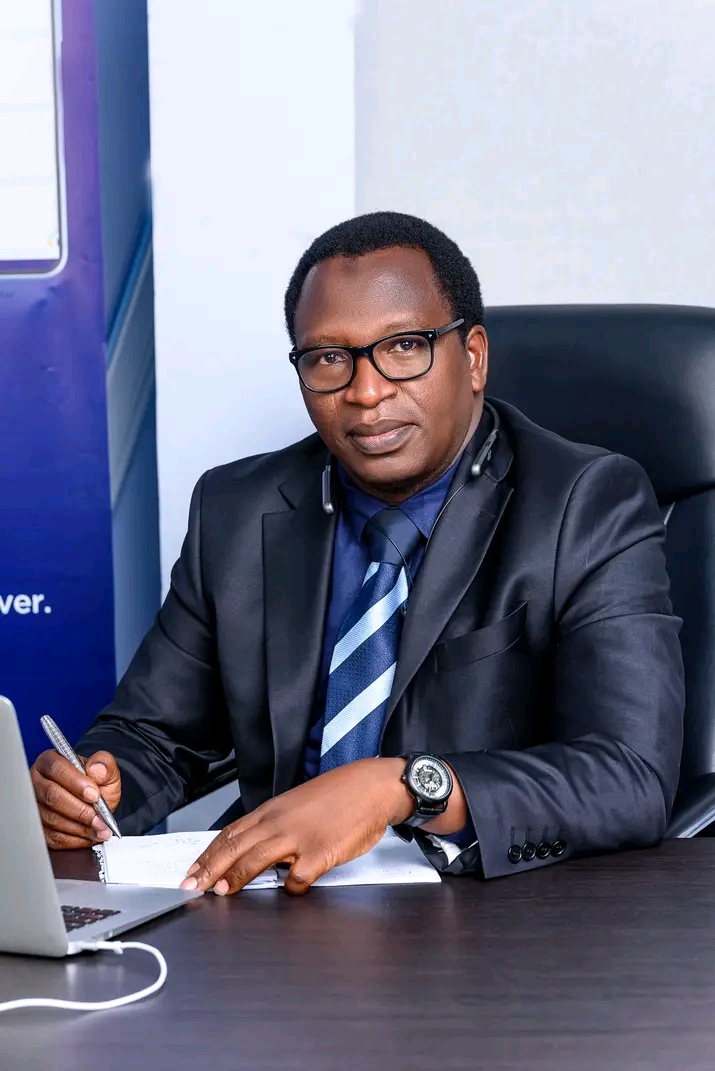
By Our Correspondent
In a compelling and emotionally charged open letter that has stirred national discourse, prominent activist and public accountability crusader, Comrade Ibrahim Garba Wala, popularly known as IG Wala, has called on President Bola Ahmed Tinubu, his presidential team, and state governors to reclaim their conscience and govern with empathy, integrity, and urgency.
Titled “For the Sake of Nigerians and Nigeria, Have Conscience as Leaders!” the letter lays bare the frustrations of millions of Nigerians grappling with hunger, insecurity, and a governance style that Wala describes as increasingly detached from the realities of the people.
A Cry from the Heart
“It is with a profound sense of urgency and a heavy heart that we address you today,” the letter begins, “not as mere constituents, but as citizens deeply concerned by the trajectory of our beloved nation.”
Wala describes a Nigeria where leadership has become synonymous with conquest rather than service, where democratic ideals have been hollowed out, and where political power no longer reflects responsibility to the people.
“Why do leaders contest elective positions if their core values demonstrate nothing short of conquest rather than service?” he asks, pressing Nigeria’s political class to reconsider the true essence of leadership—which, according to him, must be rooted in sympathy, empathy, and an unwavering conscience.
Democracy Under Threat
Wala raises alarm over what he describes as a systemic collapse of constitutional order and democratic principles. He accuses all arms of government—executive, legislature, and judiciary—of failing to uphold the Constitution, allowing instead for the abuse of power and suppression of dissent.
“Why do we have this Constitution if its tenets are seemingly disregarded and its spirit routinely trampled upon?” he queried. “Why do the institutions meant to check power appear complicit in its abuse?”
This complicity, he warns, is eroding Nigeria’s democratic foundations and leaving citizens voiceless and unprotected.
Grassroots Betrayal
The activist particularly criticized the governors, whose leadership affects citizens directly at the grassroots level. He described a growing betrayal of trust by those who were elected with fanfare and promises, only to abandon their people once power is secured.
“What is the crime of the ordinary citizen,” Wala wrote, “for patiently enduring the sun and rain to cast their votes, only to be forgotten when their basic needs go unmet?”
He called for renewed accountability at the state level, urging governors to engage more directly with those they lead and to stop treating public office as a “ticket to privilege.”
Human Suffering Beyond the Numbers
Perhaps the most searing part of Wala’s letter is his analysis of the human cost of current economic and security failures. Drawing from recent reports, he noted that 133 million Nigerians are multidimensionally poor, while 33.1 million are projected to face acute food insecurity in 2025.
“These are not just statistics,” he stressed. “They represent mothers who cannot feed their children, fathers who cannot provide, and youth who see no future.”
Wala lamented how kidnappings, banditry, and communal violence have become routine, while inflation, currency depreciation, and high living costs have pushed 74% of financially distressed adults to the brink.
A Final Plea for Redemption
In his closing remarks, the activist implored Nigerian leaders to reflect on their oaths of office and return to the principles of servant leadership. He called on them to transcend political rivalries, reconnect with the people, and urgently begin delivering tangible, visible results.
“This is not the Nigeria we envisioned,” Wala declared. “The patience of the citizenry is not infinite. Our collective humanity depends on your conscience and your courage to lead rightly.”
Growing Support and Calls for Action
Since its release, the letter has gained traction online and among civil society groups. Many Nigerians say IG Wala has captured the mood of a nation in pain—yet still clinging to hope that truthful words can move mountains.
Some political observers view the letter as a crucial moment in civic advocacy—a bold reminder that real change starts with listening, and that silence in the face of suffering is no longer an option for those in power.
-

 Leadership1 year ago
Leadership1 year agoBreaking: African Union Appoints Pantami as Co-Chair of the 4th Industrial Revolution Policy Council
-
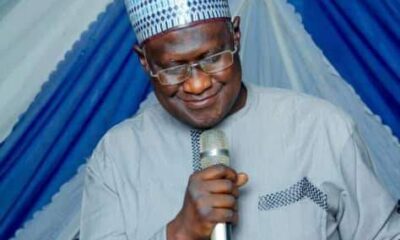
 Appointment11 months ago
Appointment11 months agoGombe State Indigene, Appointed New Vice Chancellor (ATBU)
-

 Politics2 years ago
Politics2 years agoFormer Gombe State APC Promoters Forum Chairman Attacked Following Political Commentary
-
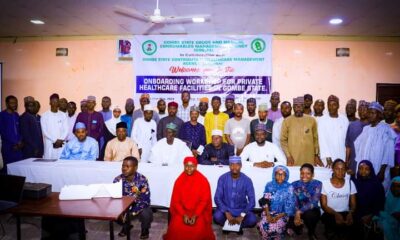
 Health1 year ago
Health1 year agoGombe State Organizes Onboarding Workshop for Private Healthcare Facilities
-
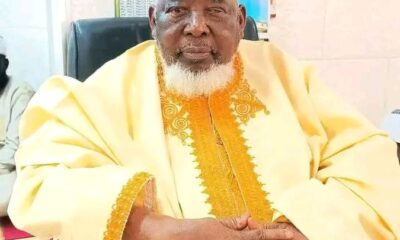
 Death6 months ago
Death6 months agoProminent Nigerian Islamic Scholar, Sheikh Sa’idu Hassan Jingir, Passes Away
-
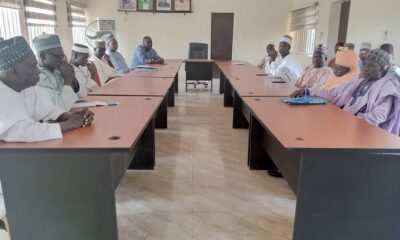
 Water1 year ago
Water1 year agoGombe Government Mobilizes Stakeholders to Combat Illegal Water Connections
-
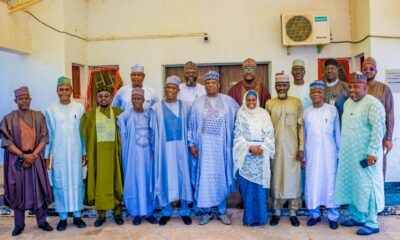
 Politics1 year ago
Politics1 year agoGombe State Inaugurates Human Capital Development Council
-
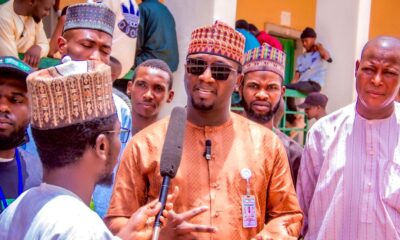
 Politics1 year ago
Politics1 year agoGombe State Launches Presidential Palliative Program (PPP) to Aid Small Businesses
